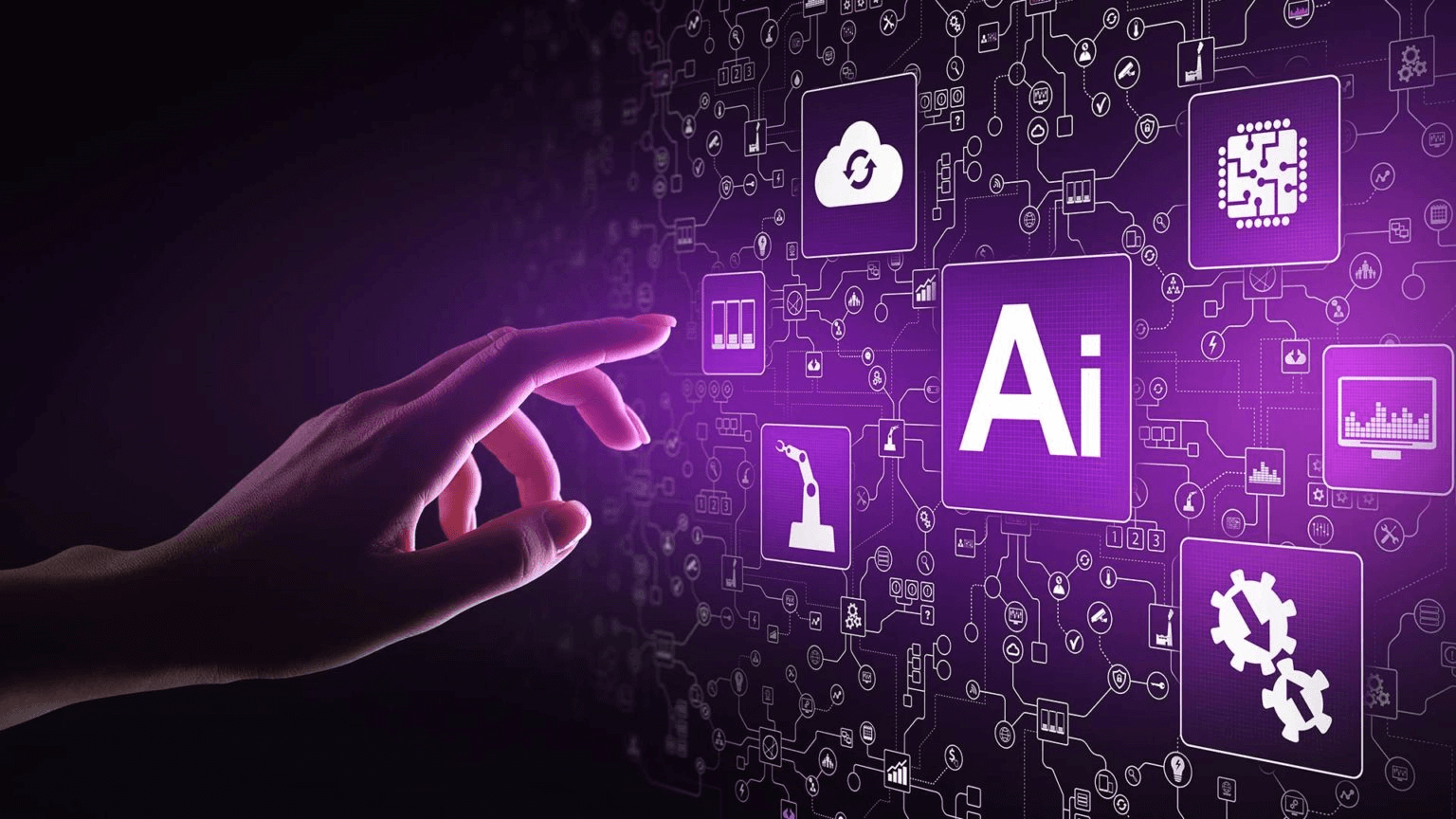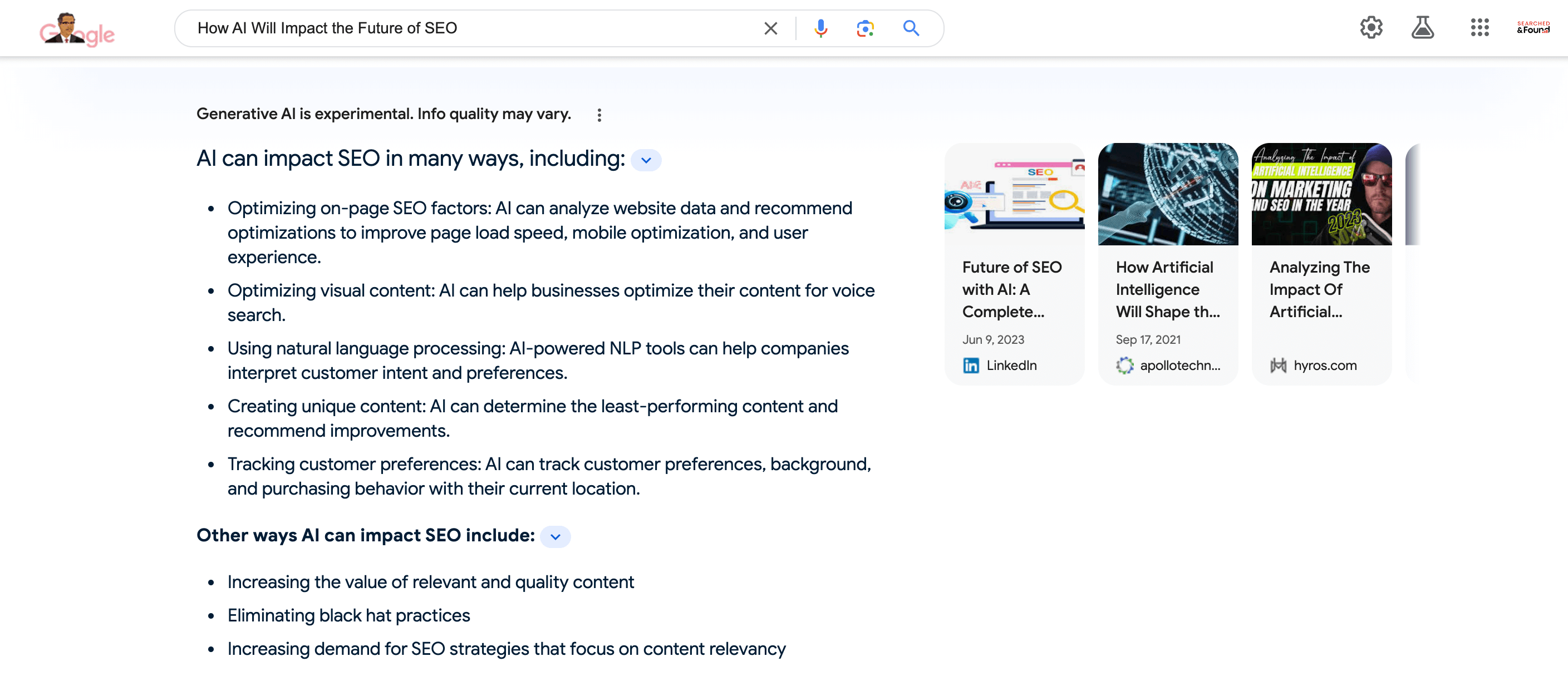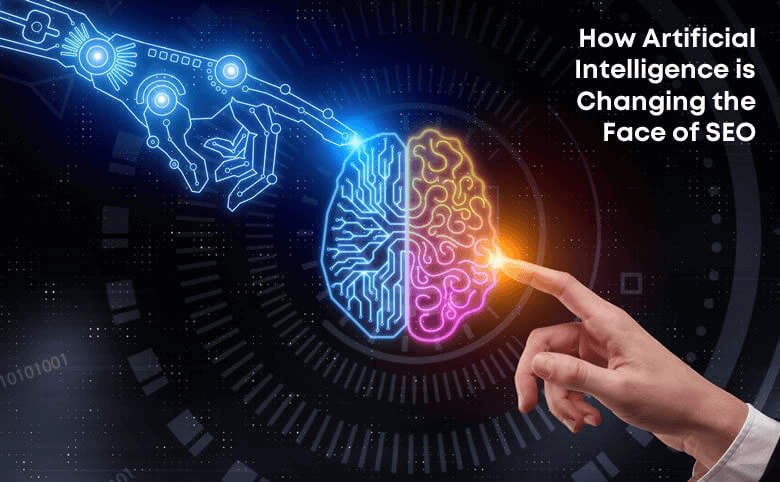
The use of Artificial Intelligence (AI) has seemingly emerged overnight, sparking much excitement (and debate) across industries. In the Search Engine Optimization (SEO) industry, AI technology is primarily used for data analysis and content creation. AI can create in just about any platform, from text-based content like blogs and email. It can also aid in generating videos and other media.
AI’s capabilities will expound over time, becoming more sophisticated and applicable to industries worldwide. SEO professionals will find more ways to incorporate AI into their work. AI’s SEO applications come with concerns, one being that AI-generated content will lack originality and fail to connect with users on a human level.
Despite such concerns, AI has already permanently changed search. Users are now receiving highly customized search results based on their past history, device use, locations, and countless other factors analyzed by AI. As a result, search engines can produce increasingly precise results that match user intent.
This shift in search has also revolutionized SEO. AI technology enables us to build highly customized optimization strategies. While the traditional SEO principles remain the standard, achieving those page-one results must now involve AI to remain competitive. AI enables us to better analyze the relationship between search intent and content and apply that data to optimization strategies for more specific sets of keywords.
AI has already changed how search engines deliver results and how we currently employ SEO strategies. AI promises to continue to impact SEO into the future, and it’s up to us to harness its capabilities and work around its drawbacks.
The Evolution of AI Technology
While it seems as though AI has come to the forefront of SEO overnight, its beginnings go back a few years. AI has been employed in SEO since 2015, when Google began using an AI system called RankBrain to process search results. Later, in 2017, they began using machine learning to minimize spam. By 2019, Google was using RankBrain to process all search queries.
Other businesses took Google’s lead and started using AI and machine learning, creating AI-based SEO tools. These tools are now being used for SEO tasks like traffic and site growth analysis, keyword research, voice search, and content creation. These tools mean that smaller businesses can also leverage AI to create and maintain their digital marketing campaigns. They can better compete with larger competitors.
This is leveling the playing field, enabling companies of all sizes to access more sophisticated AI technology.
How AI Affects SEO
As mentioned, AI now plays a prominent role in SEO strategies; it provides incredible insights and automates many SEO processes. Conversely, emerging AI algorithms enable search engines to understand user intent better and generate precisely relevant search results.
Thus, SEO marketers and businesses must adapt to include AI in their strategies and align their SEO goals with this new technology. Here is where AI is making an impact:
Keyword Research
Proper keyword research is the cornerstone of any SEO strategy. AI-powered tools enable you to analyze vast amounts of data at once. From there, you can more easily identify high-performing, low-competition keywords. You can generate local keywords for local SEO optimization.
Additionally, AI algorithms predict keyword trends, enabling you to keep abreast of trends and optimize your content accordingly.
Content Generation and Optimization
AI is a game-changer regarding content creation and optimization. AI generates high-quality content by employing Natural Language Processing (NLP) technology in tools like Jasper and ChatGPT. Such content follows search engine guidelines as expected. However, it also creates relevant content that connects with users. From structural and language perspectives, AI improves readability and overall content optimization.
Voice Search Optimization
Currently, more than 50% of users use voice assistants like Alexa, Siri, or Google Assistant for search queries. Thus, voice search has become a growing focus of SEO. AI machine learning understands natural language queries and provides relevant results. Optimizing for voice search means using structured data, long-tail keywords, and conversational language.
On-Page and Off-Page SEO
On-page SEO includes elements such as headings, meta tags, and internal links. AI can analyze these elements and recommend ways to optimize web pages that improve on-page SEO. AI algorithms will suggest ways to enhance mobile optimization, page load speed, and overall user experience, all resulting in higher search rankings. Also, AI can assist in creating your SEO titles, meta tags, and even generate content outlines for SEO blog articles.
AI enhances off-page SEO efforts as well. It provides insights for building backlinks and establishing a credible online presence. For instance, AI can suggest ranking websites for link building. It can also analyze your competition’s backlink profiles and then use that information to suggest strategies to improve your off-page SEO.

The Future of SEO and AI
AI technology is rapidly evolving and promises to play an increasing role in search engine ranking, SEO analytics, and content creation. How much AI is employed depends mainly on the integration of the various AI technologies.
Machine learning algorithms will continue to evolve, becoming more intelligent and adept at analyzing data, thus refining SEO strategies for improved results. In addition, AI will allow users to access and apply vast amounts of data, enabling them to make more tailored, data-driven decisions for marketing campaigns.
Finally, AI automates the more repetitive SEO tasks, freeing marketers’ time for strategic and creative endeavors. The combined results will provide an enhanced user experience, improved website performance, and more personalized recommendations.
Understandably, SEO and AI are inextricably linked. SEO professionals must embrace AI and its integrated technologies to leverage all it has to offer.

The Human Factor
While AI automates tasks and even creates content, it cannot replace the human element regarding strategy and creativity. AI technology contains powerful tools that assist people by automating redundant tasks, analyzing large amounts of data, and assisting with content creation. Like any tool, AI works best when used correctly. Next are some strategies for leveraging AI functionality.
Know Your Audience
SEOs focus on creating relevant content for their target audience. In this regard, AI is invaluable because AI algorithms can detect content that may be irrelevant to the user’s search queries. Search engines already rely on big data to understand what the user wants and present different search results accordingly. By employing AI, you can match your SEO to Google’s, leading to more successful search engine results.
Create Unique Content vs. Content Reproduction
A standard SEO goal is to create original and distinct content instead of a copy of an existing piece of content. This principle applies to AI-generated content as well. Though, you’ll want to ensure that it doesn’t wander into the area of content reproduction.
AI excels at creating research-based content like case studies, surveys, and research articles. It can create cohesive articles with new and unique data. When this type of content is needed, AI can be a superior resource – when it comes to gathering the data, that is. You’ll still want human eyes to look over the written product to ensure originality as well as proper tone and language for the intended audience.
AI content is essentially a grouping of information found online. The end product tends to be less creative than content written by a person. There’s also a danger of plagiarism or copyrighted materials making their way into the content. You’ll want a writer or subject matter expert to review the article to fact-check and edit for clarity.
Of course, any type of message or content related to human experience or emotions should be reviewed, especially if AI-generated. Many times, AI-generated content saves time, even when including the time for an individual to monitor and edit the content before publishing.
Social Media and Email Marketing
ChatGPT is the AI tool to use when you wish to generate ideas or content for social media marketing. With it, you can create posts, campaigns, promotions, and even responses to comments. Chat GPT can also suggest ways to increase your audience on social media.
AI generators can also be used for email messages, whether you need a subject line or the entire message. Often, marketers use AI to create the language for special promotions.
Again, Chat GPT and other AI content generators are aids, and any content should be reviewed first.
Blog Posts
Many SEO specialists will advise that you not use AI to create entire blog articles to ensure the content is unique. That being said, AI can aid in the blog writing process by creating an outline for your topic. From there, you can write, filling in the outline. Another area where AI can assist is in writing the article title or headline. The same applies to ads. Both blog articles and ads need a solid headline to capture attention.
AI to Improve SEO Strategy
While we have touched upon the following points already, it’s essential to understand that AI is here to stay, and embracing the technology will strengthen your existing SEO strategies. AI is a tool, not a replacement for the human factor. The areas where AI can fortify your SEO strategy are predictive analysis, optimization, content creation, automation, and analytics.
Predictive Analysis and Optimization
Relevant keywords remain the cornerstone for SEO. AI tools can aid in identifying current high-ranking keywords. However, they can also predict which keywords are trending upward. Such predictive AI algorithms gather factors like historical data and user behavior to predict potential future ranking of specific keywords and related content.
Using tools like SEMrush, Google Keyword Planner, and Moz Keyword Explorer, you can further optimize your content to keep up with upward trends, resulting in higher organic traffic. These tools can also aid in other facets of optimization, including voice search. For example, they understand and optimize for voice search, and then align content to the associated search intent accordingly.
As discussed earlier, voice search tends to be more conversational, and the user’s phrasings are longer than the traditional text (typed) searches. In addition, SEO needs to address voice search and optimize for assistants like Google, Alexa, and Siri.
Content Creation
Regarding content creation, content marketers have used generative AI tools like Chat GPT since 2022, experimenting to create new content. Whether you use it to build entire articles, generate ideas, content outlines, or headlines, AI can go a long way towards optimizing your final product so that it ranks higher in Search Engine Results Pages (SERPs).
Also, AI analyzes large amounts of data to aid in creating personalized content experiences for users. This is one of the most effective ways to increase audience engagement and, subsequently, conversion. Personalized content adds more value for your audience, which, in turn, makes your content stand apart from the rest. Personalized content is not limited to text. AI can also assist in creating infographics and other media tailored to your users’ interests and search intent.
Automation and Analytics
Lastly, you can use AI to automate reporting and analytics processes. You’ll receive more detailed insights quickly, streamlining your processes and freeing your staff to concentrate on other things.
You can use AI-powered analytics tools such as Google Analytics, Adobe Analytics, and Mixpanel to analyze large amounts of data in real time. Further, these tools identify patterns, trends, and performance areas needing improvement within your current SEO strategy.
Embracing AI Technology
At this point, we know the future of SEO will be formidably linked to AI. Embracing AI technology now and learning to take advantage of all it offers is crucial for any business to compete in the ever-evolving digital landscape. If you are a business owner or marketer, you must adapt to AI’s presence in all SEO strategies and techniques. Not doing so will cause you to weaken your SEO campaigns and fall behind your competitors.
As we have discussed, AI has already left its mark on SEO in several ways, from heightening the power of search algorithms to automating critical SEO tasks like content optimization and keyword research. Search results are more easily personalized, and analysis now includes predictive SEO that actually anticipates future trends and algorithm updates.
AI technology and tools continue to evolve. As they become more powerful and sophisticated, they will bring more changes to the field of SEO. Of course, this will present as many challenges as opportunities. However, it will also bring more efficiencies that will allow the SEO industry to evolve as well. Remember, AI goes far beyond automation and analytics. It aids in understanding user intent as well as creating relevant and engaging content. Its natural language processing, voice search, and conversational AI capabilities are proof.
While AI promises to transform SEO, it will never replace the human factor. SEO remains equal parts art and science, so the human element can never be removed from the equation. SEO is, after all, about building relationships with people. If SEO professionals embrace the changes AI brings, they can use them to innovate and enhance the field, as well as help clients drive organic traffic, experience sustainable growth, and build those all-important relationships with their audience.